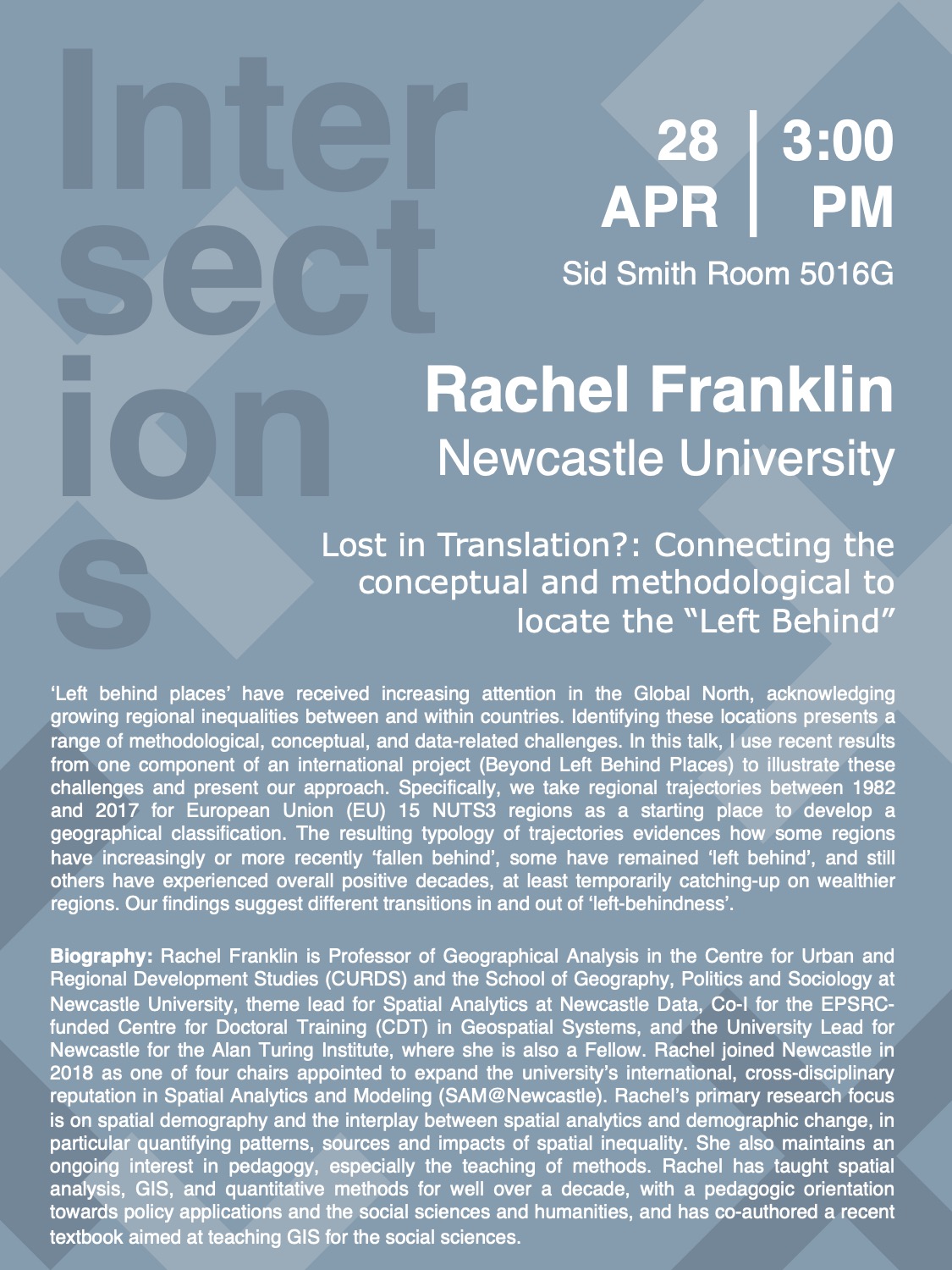Lost in Translation?: Connecting the conceptual and methodological to locate the “Left Behind”
When and Where
Speakers
Description
'Left behind places have received increasing attention in the Global North, acknowledging growing regional inequalities between and within countries. Identifying these locations presents a range of methodological, conceptual, and data-related challenges. In this talk, I use recent results from one component of an international project (Beyond Left Behind Places) to illustrate these challenges and present our approach.  Specifically, we take regional trajectories between 1982 and 2017 for European Union (EU) 15 NUTS regions as a starting place to develop a geographical classification. The resulting typology of trajectories evidences how some regions have increasingly or more recently 'fallen behind', some have remained left behind', and still others have experienced overall positive decades, at least temporarily catching-up on wealthier regions. Our findings suggest different transitions in and out of 'left-behindness'.
Specifically, we take regional trajectories between 1982 and 2017 for European Union (EU) 15 NUTS regions as a starting place to develop a geographical classification. The resulting typology of trajectories evidences how some regions have increasingly or more recently 'fallen behind', some have remained left behind', and still others have experienced overall positive decades, at least temporarily catching-up on wealthier regions. Our findings suggest different transitions in and out of 'left-behindness'.
Biography
Rachel Franklin is Professor of Geographical Analysis in the Centre for Urban and Regional Development Studies (CURDS) and the School of Geography, Politics and Sociology at Newcastle University, theme lead for Spatial Analytics at Newcastle Data, Co-I for the EPSRC-funded Centre for Doctoral Training (CDT) in Geospatial Systems, and the University Lead for Newcastle for the Alan Turing Institute, where she is also a Fellow. Rachel joined Newcastle in 2018 as one of four chairs appointed to expand the university's international, cross-disciplinary reputation in Spatial Analytics and Modeling (SAM@ Newcastle). Rachel's primary research focus is on spatial demography and the interplay between spatial analytics and demographic change, in particular quantifying patterns, sources and impacts of spatial inequality. She also maintains an ongoing interest in pedagogy, especially the teaching of methods. Rachel has taught spatial analysis, GIS, and quantitative methods for well over a decade, with a pedagogic orientation towards policy applications and the social sciences and humanities, and has co-authored a recent textbook aimed at teaching GIS for the social sciences.


